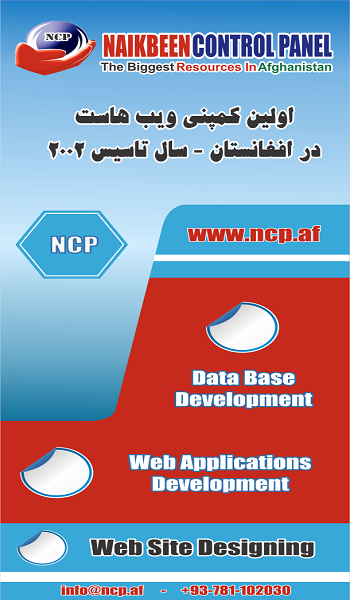The United Nations Assistance Mission in Afghanistan (UNAMA) is a UN Special Political Mission established to assist the state and the people of Afghanistan in laying the foundations for sustainable peace and development. UNAMA was established on 28 March 2002 by United Nations Security Council Resolution 1401. Its original mandate was to support the implementation of the Bonn Agreement (December 2001). Reviewed annually, this mandate has been altered over time to reflect the needs of the country and was extended for six months, on 17 September 2021, by UN Security Council Resolution 2596 (2021).
The Council also requested the Secretary-General to prepare a written report by 31 January 2022 outlining “strategic and operational recommendations for the mandate of UNAMA in light of recent political, security, and social developments” in Afghanistan.
UNAMA is headed by the Special Representative of the Secretary-General (SRSG) for Afghanistan, Deborah Lyons, who was appointed to the post in March 2020, replacing Tadamichi Yamamoto. Previous SRSG’s were– Lakhdar Brahimi who served from October 2001 to January 2004; Jean Arnault from February 2004 to February 2006, followed by Tom Koenigs from March 2006 to December 2007, Kai Eide from 2008 to 2010, Staffan di Mistura from 2010 to 2011, Ján Kubiš from 2012 to 2014, Nicholas Haysom from 2014 to 2016 and Tadamichi Yamamoto from 2016 to 2020.
Since 2008, and following a directive of the UN Secretary-General, UNAMA is an integrated mission. This means that the Special Political Mission, all UN agencies, funds and programmes, work in a multidimensional and integrated manner to better assist Afghanistan according to nationally defined priorities.
The SRSG is responsible for all UN activities in the country and directly oversees the Security Section, Strategic Communication Service, Human Rights Section, and Peace and Reconciliation. The SRSG’s Chief of Staff oversees UNAMA’s Field Offices.
Two deputy Special Representatives (DSRSG) oversee the main pillars of the mission – political and developmental issues. Included under these pillars are mission sections specializing in issues such as political analysis, reporting, and outreach, and donor coordination, as well as the coordination of UN agencies funds and programmes.
Within delegated authority, and under the direct supervision of the Resident Coordinator Office (RCO) Partnership Officer, the Associate Coordination Officer will carry out the following duties:
QUALIFICATIONS AND EXPERIENCE
Education: An advanced university degree (Master's degree or equivalent) OR first-level university degree (bachelor’s degree or equivalent) in business administration, management, economics or related field is required.
Work Experience: A minimum of two (2) year of progressively responsible professional experience in coordinating development activities in national government and/or at the international level is required, with a relevant Master's degree OR a minimum of four (4) years of progressively responsible professional experience in coordinating development activities in national government and/or at the international level is required with a relevant bachelor’s degree.
Previous experience in coordinating development activities in post-conflict countries and/or in international organizations or peacekeeping operations is an asset.
Languages: English and French are the working languages of the United Nations Secretariat. For the post advertised, fluency in oral and written English is required. Fluency in oral and written Dari/Pashto is required.
Special measure: The minimum work experience for NO-B with a relevant master’s degree is reduced to one (1)
year, instead of the standard minimum required work experience of two (2) years, and it is reduced to two (2)
years, instead of the standard minimum required work experience of four (4) years with a relevant bachelor’s
degree, subject to approval of the special measure. The special measure is extended until 31 December 2022
reduces the minimum required years of relevant work experience for filling positions for UNAMA General Service
and National Professional Officer positions. The special measure is applicable to all applicants.
UN CORE VALUES AND COMPETENCIES
Professionalism: Shows persistence when faced with difficult problems or challenges. Shows pride in work and in achievements; demonstrates professional competence and mastery of subject matter; is conscientious and efficient in meeting commitments, observing deadlines and achieving results; is motivated by professional rather than personal concerns; shows persistence when faced with difficult problems or challenges; remains calm in stressful situations.
Communication: Speaks and writes clearly and effectively. Listens to others, correctly interprets messages from others and responds appropriately. Asks questions to clarify and exhibits interest in having two-way communication. Tailors language, tone, style and format to match the audience. Demonstrates openness in sharing information and keeping people informed.
Planning & Organizing: Develops clear goals that are consistent with agreed strategies. Identifies priority activities and assignments; adjusts priorities as required. Allocates appropriate amount of time and resources for completing work. Foresees risks and allows for contingencies when planning. Monitors and adjusts plans and actions as necessary. Uses time efficiently.
APPLICATIONS
Applicants must accurately complete, sign and date the United Nations Personal History form (P.11) and submit the duly completed signed P.11 by e-mail to: unamava_substantive@un.org
Important Note: The availability of the position is subject to approval of budget related to assignment and classification of the posts.
Required documents to be submitted along with the signed and completed UN P.11:
No fee:
The United Nations does not charge a fee at any stage of the recruitment process (application, interview meeting, processing, or training). The United Nations does not concern itself with information in applicants
bank account.
Applicants are reminded that the United Nations cannot appoint a person who is the father, mother, son, daughter, brother, or sister of a staff member. For this reason, applicants are required to disclose at the time of their application, whether they bear any of the above relationships to a staff member of UNAMA or any other UN entity which is part of the Secretariat. In addition, selected candidates would be required to complete a family declaration form prior to assuming their duties with the Mission. Failure to disclose any of the above relationships constitutes a material omission, that could lead to termination or dismissal from the United Nations.
unamava_substantive@un.org

